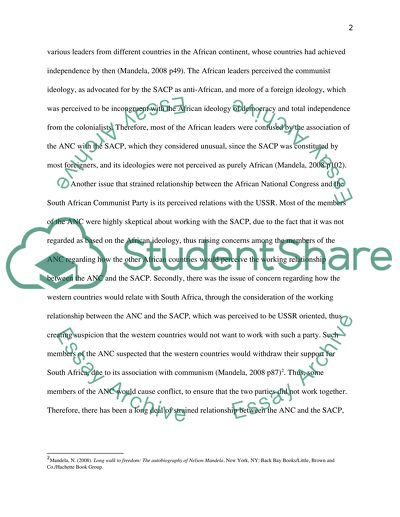Cite this document
(“The African National Congress and the South African Communist Party Essay”, n.d.)
Retrieved from https://studentshare.org/history/1475590-analyse-the-relationship-between-the-african
Retrieved from https://studentshare.org/history/1475590-analyse-the-relationship-between-the-african
(The African National Congress and the South African Communist Party Essay)
https://studentshare.org/history/1475590-analyse-the-relationship-between-the-african.
https://studentshare.org/history/1475590-analyse-the-relationship-between-the-african.
“The African National Congress and the South African Communist Party Essay”, n.d. https://studentshare.org/history/1475590-analyse-the-relationship-between-the-african.


